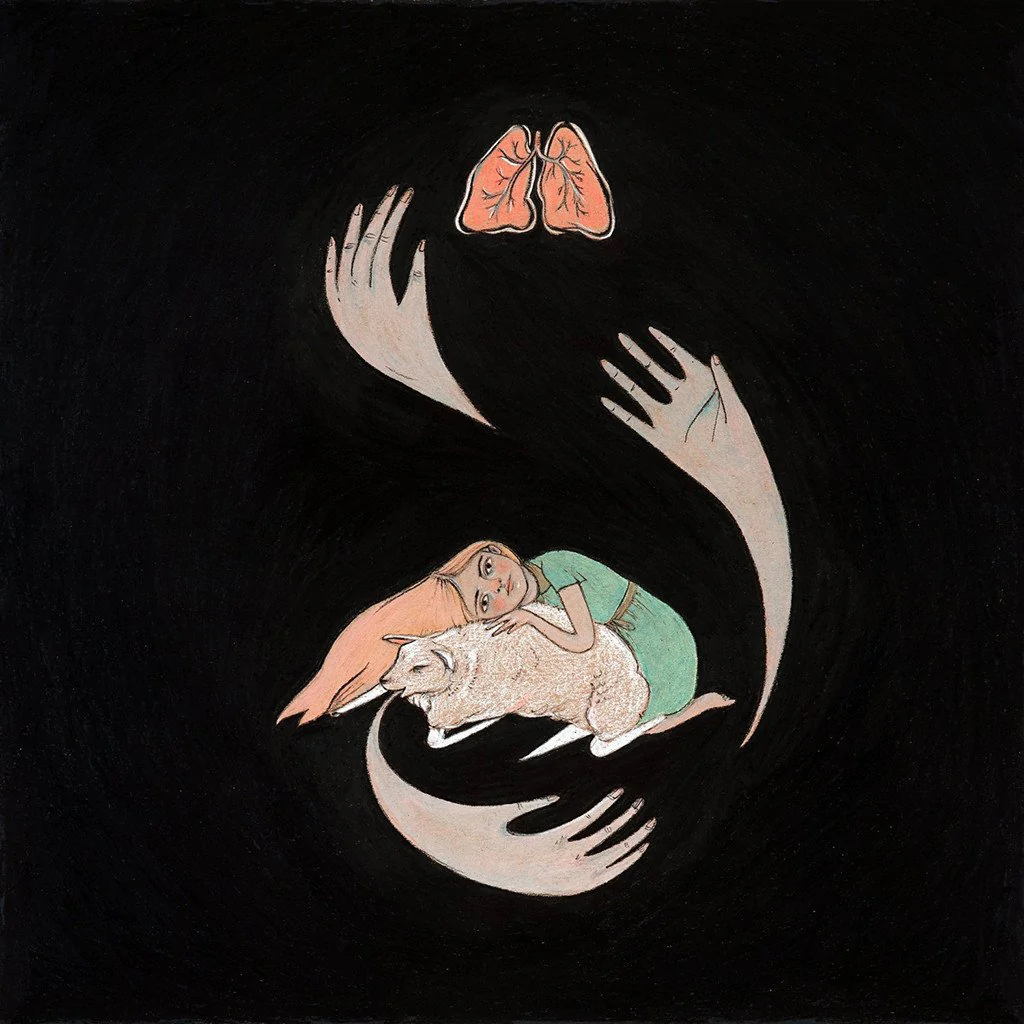- 4AD
- 2012
Crawlersout, belispeak, lofticries, obedear, grandloves, amenamy.
From the song titles on down, Purity Ring built a whole new world on their debut album, Shrines, which came out 10 years ago today. I was, and still am, deeply obsessed with the intimate, ghastly, breathtakingly beautiful songs that Megan James and Corin Roddick came up with for their first foray into music together back in 2012. It's magical -- it remains a bewitching experience that feels separate from but intrinsically tied up with our own existence. Shrines is a definitive document of the sounds of its time but also rises above them, an album that creates its own vocabulary and languid way of being that stands apart from the trends that the duo was consciously engaging with.
Roddick and James grew up in the Edmonton music scene together, though they played very different music from each other. Roddick was mostly a drummer, a part of various bands since he was a teenager. James was a classically-trained pianist who made singer-songwriter fare. When Roddick started teaching himself electronic production in the back of a van while on a long tour with the Canadian group Born Gold (fka Gobble Gobble), he emailed James to ask her to sing on what would eventually become "Ungirthed," Purity Ring's debut single that was posted online in early 2011. James wasn't actively involved in music at that moment -- she had moved to Halifax and was working as a seamstress -- but she dug around in her journals to come up with words she felt could accompany Roddick's chilling, airy production.
They continued recording and releasing tracks in a steady drip on their Tumblr and started performing live; soon enough, they locked down a deal with big-indie label 4AD. Shrines was made under deadline to capitalize on the budding interest in Purity Ring, but it certainly doesn't sound hurried or rushed. It's intoxicating and syrupy slow. They didn't shroud themselves in anonymity like many other artists did at the time, but they also came up with ways to maintain some mystery. I loved those early Purity Ring shows, where the pair made up for an insular stage dynamic with an effervescent lantern-light setup.
Purity Ring put together Shrines remotely -- with James in Halifax and Roddick in Montreal. Roddick sent beats to James and she returned the lyrics and melodies; Roddick would then fine-tune them intuitively, speeding things up and slowing them down as he saw fit. They would meet up to record them together in proper fashion, but it often sounds like James' voice is working in opposition to the songs themselves, lingering out of step with the beat. That push-and-pull dynamic is essential to what makes these songs so alluring, two brains working apart but melting together.
Shrines was released during a moment when the indie-rock and rap and pop and electronic worlds all felt like they were collapsing into one another. Purity Ring's music did not come out of nowhere. In fact, one of their big selling points in those early days was how they synthesized the sounds-of-the-moment into songs that were indebted to them but also felt like they were on a different astral plane. There are tendrils of influence from hip-hop producers like Clams Casino, Noah "40" Shebib, and Mike Will Made-It, as well as shadowy fellow up-and-comers like Grimes, Crystal Castles, and Salem. James' lyrics even had a match in Braids' fantastical and expressive songs -- they would tour with that band in the fall before Shrines was released. The album's "Grandloves" incorporates a sample from similarly-minded Canadian electronic project Young Magic, and Jon Hopkins picks up a mixing credit on "Saltkin." Purity Ring's influences went further back, too -- to Portishead and Janet Jackson and Burial and Björk -- and their music also leaned forward. They dubbed themselves (or were forced to categorize themselves) as "future pop."
But Shrines doesn't sound so much ahead of its time as it does out of step with it. Roddick's production is cavernous and weary, open but somehow still oppressive. The songs sputter and break apart into glittering trills; they moan and creak, sounding gleefully, maliciously playful. The duo invited comparisons to the Knife, and for good reason -- while lacking that duo's barbed politics, they share an affinity for making ugliness beautiful. Often Purity Ring's squicky feeling comes from James' lyrics, with their focus on the anatomical. "Get a little closer let fold/ Cut open my sternum and pull/ My little ribs around you," she sings on "Fineshrine." On "Grandloves": "I'll stake rare toothpicks in my dirt-filled heart/ Meander the sacred lot of you in every season." On "Lofticries": "Let It seep through your sockets and ears into your precious ruptured skull." You get it, or have listened to Shrines often enough that James' nightmarish logic feels all too familiar.
I recently finished reading Robert Glück's poetic 1994 novel Margery Kempe, which is similarly sensual and coarse and visceral, and a quote from Glück struck me as applicable to James' own writing: "The best reading is an uncertain reading ... We are educated to think that we should be able to know the meaning of a piece of writing, but what if the intention of the writing is to throw us into confusion, induce a state of wonder, and unravel the basic tenets of our experience?" James echoes this sentiment in a 2012 interview: "I like words and alliterations and making confusing things out of words when they're meant to make things less confusing." On Shrines, she ties together layers of incomprehensible meaning, stacks up words and smushes them together. The unknowability of her lyrics only make the songs that much more powerful.
Purity Ring have had trouble following the magic of Shrines. I've found plenty to like about the two albums they've released in the past decade -- 2015's Another Eternity and 2020's WOMB -- but neither have left the same impression that Shrines did. But what Purity Ring did on their debut album can still be heard today. Lorde's initial rise and Billie Eilish's popularity, rap music's continued embrace of insular and narcotized sounds -- all that can be traced back in some way to the same era that the duo came up in. Purity Ring themselves contributed to some of that: collaborating with Danny Brown and Ab-Soul, releasing a cover of Soulja Boy's "Grammy," eventually working with Katy Perry. The sleek, murky beauty that Shrines captures is still reverberating, but Purity Ring's debut remains a singular achievement -- a mystical world unto itself that holds up masterfully.






